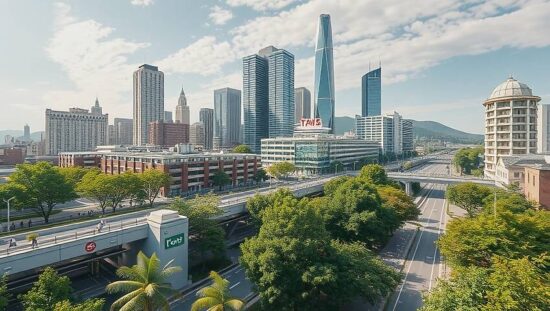A sustainable revamp of cities and communities functions when it is long-term financed and citizens are involved. This was demonstrated by a short study of the Wuppertal Institute for Climate, Environment and Energy, published on Thursday, commissioned by the Council for Sustainable Development.
“A sustainable, future-oriented revamp of cities and communities requires visionary political concepts on the local level, but also concrete financial support” explained Manfred Fischedick, president and scientific managing director of the Wuppertal Institute.
“Communities are the central implementation level, where the necessary processes for a sustainable transformation must be designed in detail. However, changes often affect the daily habits of people, so this can only be done in close exchange with the people and a consistent and goal-oriented mix of instruments that meets a high level of acceptance on the local level and encourages participation” he said.
Fourteen examples from six different transformation areas were selected for the study, including free public transportation, participatory competitions for de-reurbanization, a parking fee and municipal packaging taxes and a repair bonus.
The short study shows that transformation processes are particularly successful when they are “comprehensively designed” and enjoy a broad social acceptance, according to the Wuppertal Institute. The key to success is that local actors from administration, economy and civil society are involved, long-term financially sustainable models are developed and citizens are given the opportunity to co-shape.
The examples of the short study are intended to serve as a basis for further in-depth analyses and the development of consistent policy packages. The authors stated that successful municipal projects could be supported and scaled up through targeted measures at the federal level, including creating legal framework conditions to facilitate sustainable investments, providing incentives for sustainable urban development projects and promoting the exchange of knowledge between municipalities.
“Sustainable living environments are possible” said Kai Niebert, a member of the Council for Sustainable Development. “It is clear, however, that sustainability as an add-on for a business-as-usual policy will not succeed. If politics and administration, however, shift from sustainable procurement to sustainable public transportation, real progress can be achieved – for the people and for the planet.





